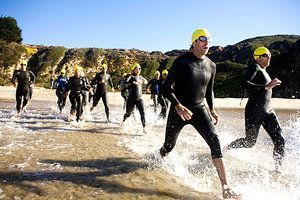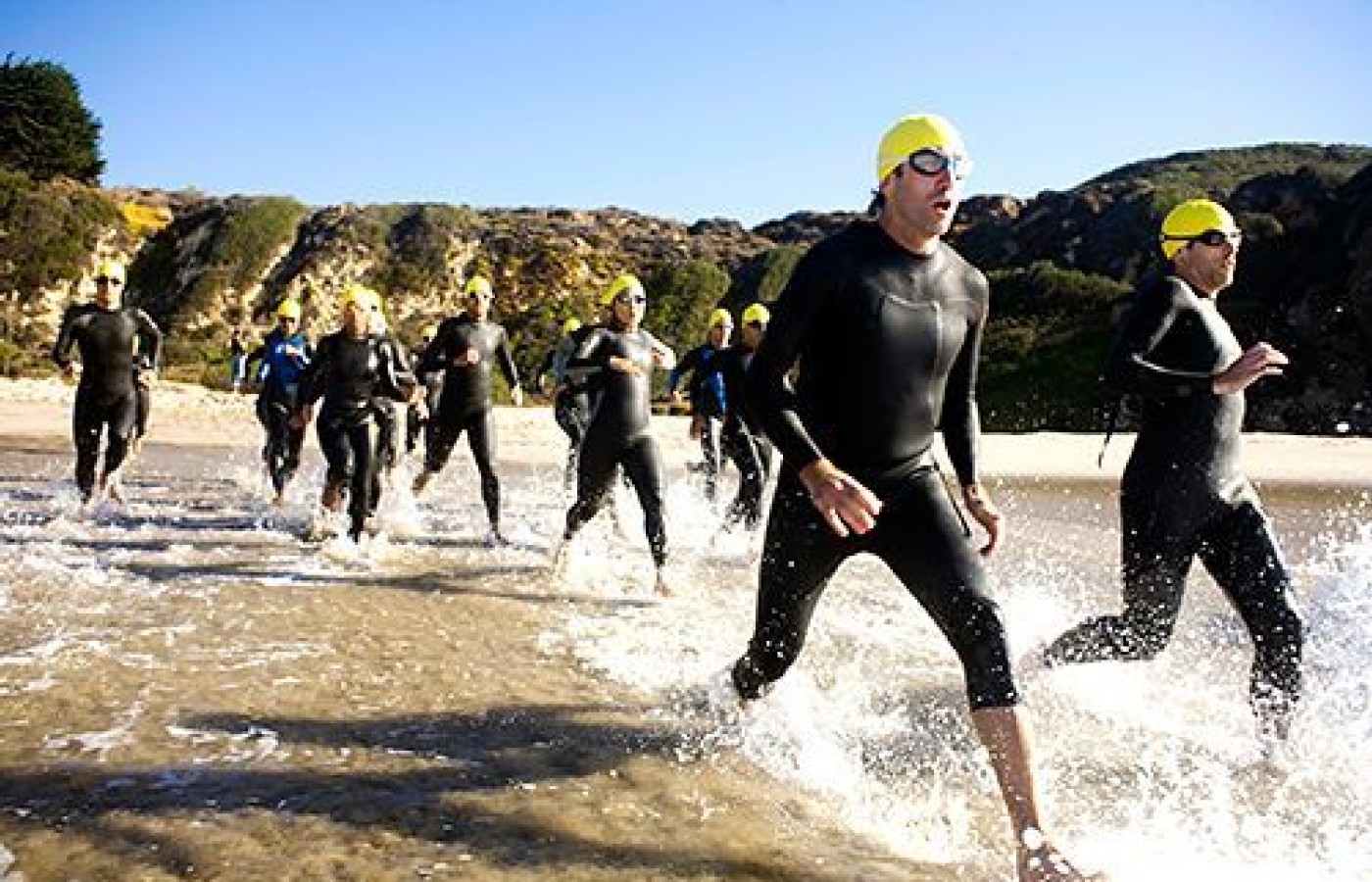The most important relationship I seek to nurture in the treatment room is the one a patient has with their own body. We live in a culture that teaches us to override pain, defer to outside authority, and push through discomfort. Patients often arrive hoping I can “fix” them, but the truth is, we can’t do the work for them. We can offer guidance, insight and support, but healing requires their full participation.
Integrative Sports Medicine
"Generally speaking, using medicine, acupuncture, and moxa cautery are poor strategies of the last resort. If you are 1.) moderate with food, drink and sex, 2.) establish times for sleeping and waking, and 3.) take good care of yourself, you will not become ill...Medicine, acupuncture, and moxa cautery are, then, treatments with advantages and disadvantages. You should avoid them unless they become absolutely necessary. You should depend principally on preventative measures to insure your health." Yojokun: Life lessons from a Samurai, Kaibara Ekiken
One of the most rewarding and challenging clinical scenarios is the treatment of athletes. While most consider the main focus of sports medicine to be the presentation and rehabilitation of injuries, I consider the cultivation of vitality and deep reserves of immune vitality to be main focus in my clinical practice. In this series of articles, I will cover some unique perspectives of integrative care for athletes and present a clinical paradigm which can allow practitioners to think of outside of the box of standard myopic sports medicine. In this first installment, I will present some unique perspective from Ayurvedic medicine which can creative an environment in which health, vitality and deep immune reserves can flourish allowing athletes to train efficiently, avoid injuries and experience a high quality of physical and psychological health.
Before the clinician or athlete seeks herbal medicine or acupuncture to improve sports performance or heal injuries, the main area of focus should be the overall daily environment of the athlete. In Ayurveda, this is referred to the as the "Three Pillars of Health." This consists of the areas of diet, rest/sleep/recovery, and relationships. These three areas are key for the cultivation of deep health and vitality so important for the prevention of injury and immune suppression so common in competitive athletes. If these three areas are ignored or neglected, no amount of herbal medicine, vitamins or acupuncture can effectively return the athlete to a true state of balance; when ignored, the clinician simply resorts to nursing surface symptoms while deeper imbalances are allowed to take root and become future injuries.

The first category of "diet" in the Ayurvedic Three Pillars of Health is an enormous area of discussion beyond the scope of this article but some cogent points can be introduced and discussed which can easily be tailored for specific individuals following various dietary protocols. In general, the clinician should seek to educate the athlete on the overall importance of seeing diet not just as short term "fuel" but rather long terms investment into deep vitality. The quality of food has a direct influence on the quality of physical/mental performance and in most cases of athletes seeking herbal medicines or acupuncture to improve performance outcomes, a poor quality diet is uncovered allowing imbalances to appear. Therefore, before an athlete or clinician seeks herbs, vitamins or acupuncture to target waning performance, the dietary intake must be examined and efficiently evaluated. Is the athlete consuming adequate amounts of macro and micro nutrients? To comprehensively evaluate this aspect the clinician should develop a clinical protocol which includes detailed food journals, bloodwork to uncover nutrient deficiencies, and assessment of food allergies/sensitivities. Athletes often follow different diets based upon personal ideals or personal research and the clinician should seek to objectively evaluate the overall health of the patient without trying to impose personal beliefs of what a "healthy diet" entails. In my practice, I see a wide array of athletes who follow a wide array of diets ranging from vegan to vegetarian to high protein meat-based diets. Rather than trying to sway a patient to follow a trendy diet of the week, the practitioner should rather evaluate the overall intake of macro and micro-nutrients to evaluate if the respective diet followed by the athlete is providing adequate overall nutrition. If the clinician discovers a specific nutrient deficiency, then various food-based options can be provided to allow the athlete to start a gradual return to a state of balance before trying to provide herbal or acupuncture based "band-aid" approaches.
Two important areas which must also be targeted in relation to the pillar of diet includes evaluating for food allergies or sensitivities and evaluating the overall efficiency of the digestive system. These two areas are often work in tandem influence and include such important clinical paradigms such as Leaky Gut syndrome and molecular mimicry. The health of the digestive system is the foundational idea of all areas of health and vitality expressed as Spleen Qi in Traditional Chinese Medicine and Agni in Ayurvedic medicine. If an athlete is deficient in macro or micro-nutrients or experiencing a lack of overall health, the clinician must evaluate the state of the gastric system and target this effectively. The overall foundational idea is for the clinician to effectively evaluate the diet and digestive capacity of the athlete before resorting to pills and needles.
The second important Pillar of Health according to Ayurveda is sleep. This area is vitally important to assess for all athletes. The clinician should seek to establish if the respective athlete is experiencing deep restful sleep and is achieving adequate amount of daily rest. Even one day of less than 7 to 8 hours of sleep can result in impaired immune response and cognitive performance which when combined with high intensity sports training can set the stage for inevitable health decline and musculo-skeletal injury. The clinician should educate the athlete on the importance of deep sleep for recovery from high volume training and seek to help the athlete make the cognitive connection of valuing deep sleep as an investment for long term and short term health and sports performance. The clinician should at a minimum educate the patient on good sleep habits such as spending less time with digital devices in the evening, using low lighting to allow the body's circadian rhythms to effectively cycle, and to avoid stimulants such as caffeine when training the in the evening. Acupuncture and herbal medicine can be highly effective for athletes experiencing sleep disturbances, however if the patient is not following basic protocols to establish healthy sleep habits such as the aforementioned examples, the acupuncture and herbal medicine will only work as a temporary fix. In future articles, we will example comprehensive acupuncture and herbal protocols for healthy nervous system function and to target sleep disturbances however the basic ideas of healthy sleep habits and teaching the athlete to value sleep as a priority must not be overlooked.
The third Pillar of Health according to Ayurveda is establishing healthy relationships. It's very important for the clinician to inquire as to the level of mental and emotional satisfaction of the athlete. The body, although mechanistic in function and expression, is much more than just a machine. The human body is a delicate symphony of mental and physical expressions and even a healthy diet and deep sleep is not enough to nurture a true complete state of vitality. Athletes in particular tend to be driven, obsessive and focused and can often neglect the subtle idea of relationships as a source of "nourishment." The clinician should always inquire if the respective athlete has a healthy network of social resources for support, camaraderie and encouragement. The clinician should be able to guide the athlete to sources of help in these areas ranging from health coaches, life coaches or counseling as needed or desired. Ayurveda sees this pillar as a type of emotional digestive capacity and just as the state of the gastric system must be evaluated so too should the state of emotional "digestion" be evaluated. If the patient is physically "fit" but suffering from mental or emotional "indigestion" eventually injuries and poor vitality will manifest. This is complex idea and the clinician is not expected to provide all the answers. However the practitioner can effectively listen and ask questions which can discover potential seeds of future pain and suffering and refer out to appropriate health professionals and act as an effective link in the network of resources to enable the athlete to reach his or her true potential.
I hope the Ayurvedic paradigm of the Three Pillars of Health inspires clinicians to take a deeper more comprehensive approach to treating athletes. Obviously the Three Pillars of Health espoused by Ayurveda applies to all patients and not just athletes and should hopefully inspire clinicians to not simply resort to pills and "magical" acupuncture protocols to solve problems which can be truly balanced by deep integrative approaches. I will conclude this installment with the poetic words of the Sung Dynasty scholar Shao K'ang-chieh: "Taking good medicine once you've become ill, does not equal taking care of yourself beforehand."



